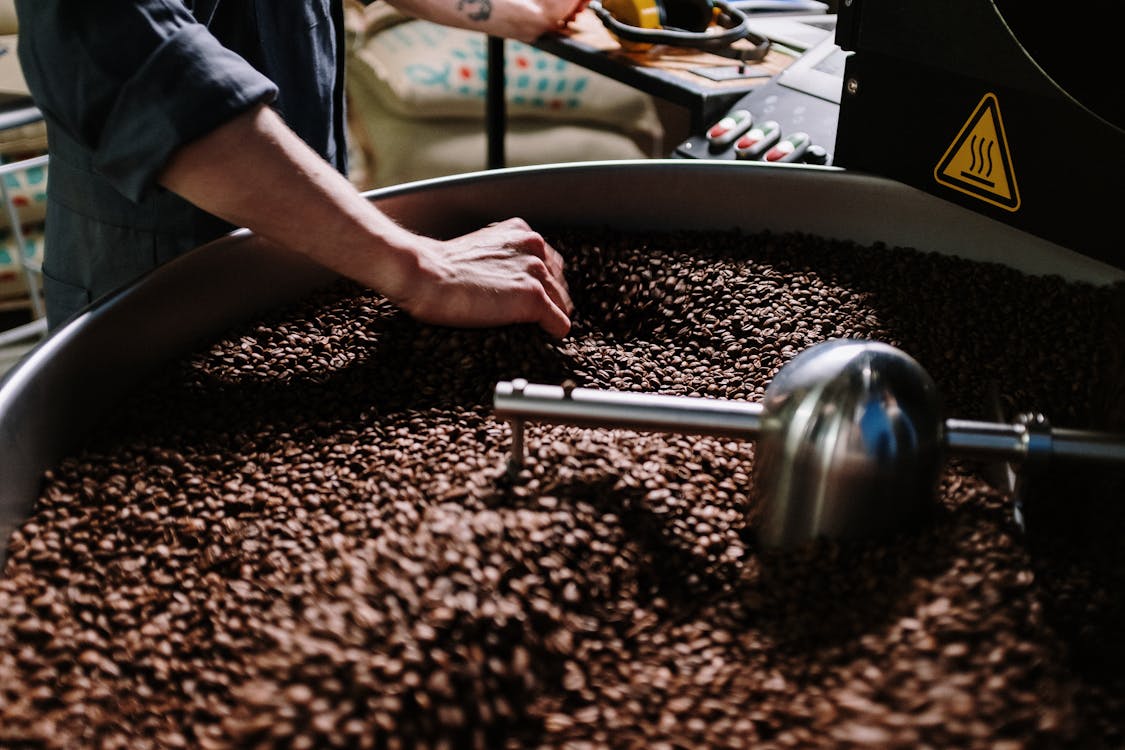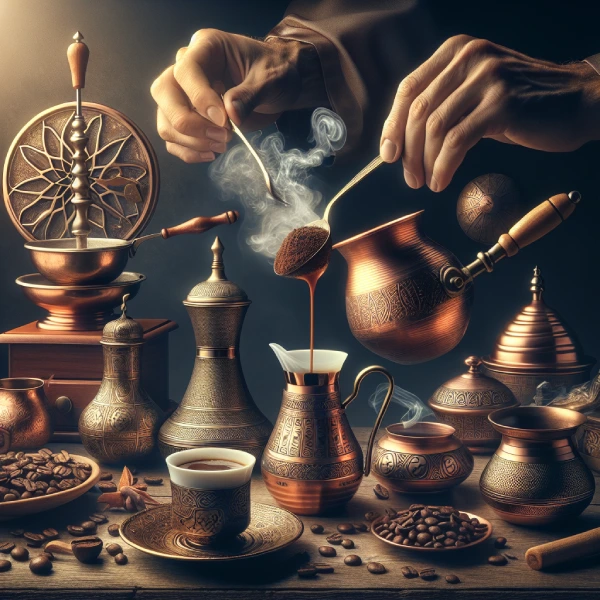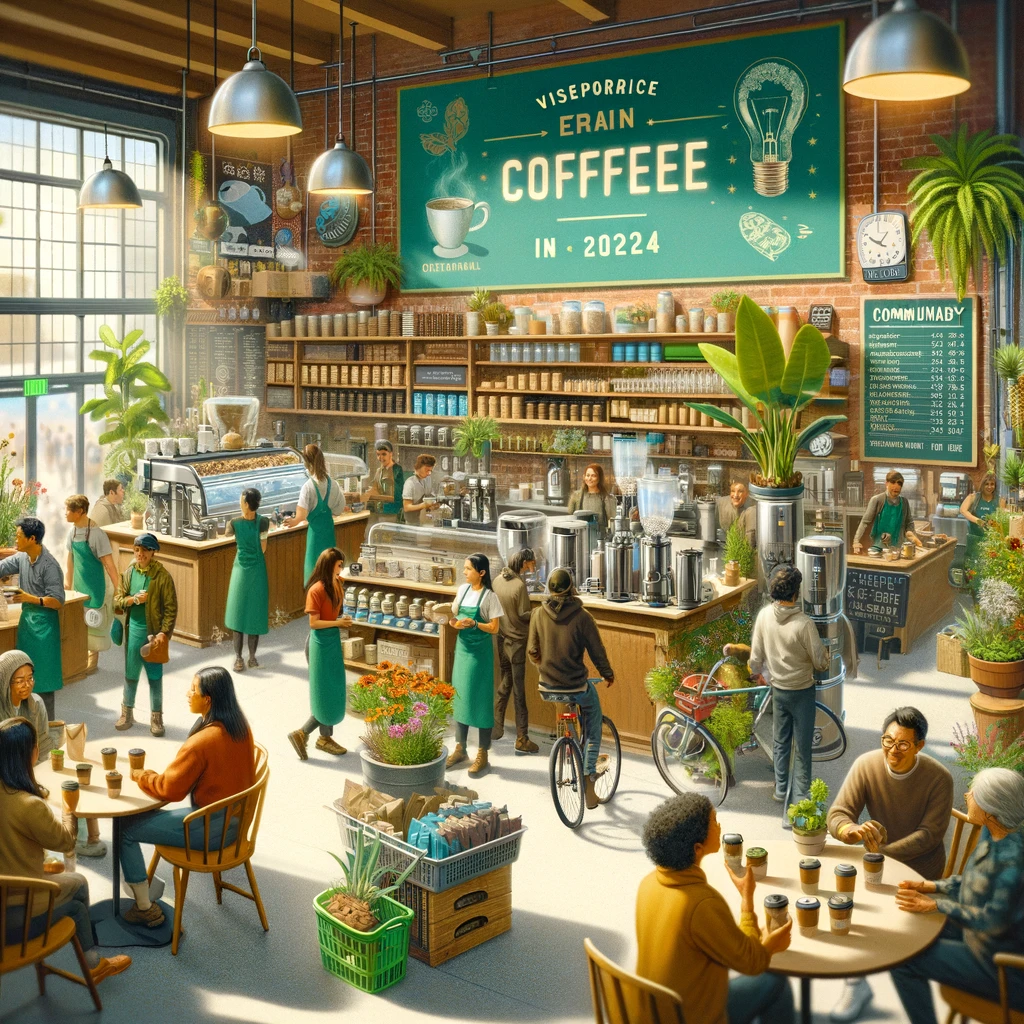Coffee, a beverage revered and enjoyed by millions, has a story that intertwines with history, culture, and innovation. At the heart of this narrative is Coffee Tree Roasters, a name synonymous with quality and community in the world of coffee.
From its inception in Squirrel Hill, Pennsylvania, in 1993, Coffee Tree Roasters has not just served coffee; it has cultivated experiences, fostered communities, and set standards in the coffee industry.
Key Takeaways:
- Discover the Origins: Trace the roots of Coffee Tree Roasters from a humble beginning to a coffee empire.
- Experience the Ambiance: Explore the unique atmosphere of their various locations.
- Savor the Selection: Dive into the diverse range of high-quality, single farm-sourced coffees.
- Embrace Sustainability: Learn about their commitment to ethical sourcing and community support.
- Feel the Impact: Understand how Coffee Tree Roasters has shaped the coffee culture in Pittsburgh and beyond.
The Humble Beginnings
The journey of Coffee Tree Roasters began with a simple vision: to serve the freshest and finest single farm-sourced coffees. Founded by the father-son duo, “The Bill’s,” it marked the beginning of a new era in Pittsburgh's coffee scene. What started as a small coffee shop with an in-store roaster has grown into a coffee empire, encompassing five retail locations, multiple licensed stores, a thriving roastery, and a full-service espresso equipment and repair company.
A Space for Connections
Each Coffee Tree Roasters location is more than just a coffee shop; it's a space where relationships are forged, ideas are exchanged, and community ties are strengthened. The ambiance of their cafes, with their warm, inviting atmosphere, encourages patrons to linger, engage, and connect.
A World of Flavors
Coffee Tree Roasters takes pride in its diverse range of coffees. Each cup tells a story of its origin, from the lush fields where the beans are carefully cultivated to the meticulous roasting process that brings out their unique flavors. Customers are not just buying a cup of coffee; they are embarking on a global journey of taste and aroma.

Photo by cottonbro studio from Pexels
Commitment to Sustainability
Sustainability is not just a buzzword for Coffee Tree Roasters; it's a core principle. Their commitment to ethical sourcing ensures that every bean is not only of the highest quality but also supports the farmers and communities where they are grown. This commitment extends to their local community, where they partner with schools and provide learning labs for students, nurturing the next generation of entrepreneurs and coffee enthusiasts.
Shaping the Coffee Culture
Coffee Tree Roasters has played a pivotal role in shaping the coffee culture in Pittsburgh. Their influence extends beyond their stores, impacting how people in the city and beyond perceive and enjoy coffee. They have set a benchmark for quality, sustainability, and community engagement, inspiring others to follow in their footsteps.
As we delve deeper into the world of Coffee Tree Roasters, let's explore the rich history of coffee itself, a journey that spans continents and centuries.
From the ancient coffee forests of Ethiopia to the bustling coffee houses of the Arabian Peninsula, coffee's journey is as rich and complex as its flavor. The history of coffee is a tale of discovery, innovation, and revolution.
The Ethiopian Origins
The story of coffee begins in Ethiopia, where legend has it that a goat herder named Kaldi discovered the energizing effect of coffee beans. This discovery, made centuries ago, laid the foundation for a beverage that would conquer the world.
Coffee Houses: The Schools of the Wise
As coffee spread to the Arabian Peninsula, it gave rise to a unique social culture. Coffee houses, known as qahveh khaneh, became hubs of social activity, intellectual discussion, and cultural exchange. These establishments were often referred to as “Schools of the Wise,” highlighting their role in the spread of knowledge and ideas.
The European Encounter
Coffee's arrival in Europe was met with fascination and fear. Some hailed it as a miraculous beverage, while others condemned it as the “bitter invention of Satan.” However, coffee houses soon sprang up across the continent, becoming centers of social activity and intellectual discourse, much like their counterparts in the Arabian Peninsula.
Coffee in the New World
Coffee's journey to the Americas was marked by the Boston Tea Party, a pivotal event that shifted American preferences from tea to coffee. This shift was not just a change in beverage choice but a symbol of a new nation's identity.
The Global Spread
The cultivation of coffee spread globally, driven by fierce competition and colonial ambitions. From the Dutch plantations in Java to the spread of coffee trees across the Caribbean, South, and Central America, coffee became a crop that shaped economies and societies.
As we continue our exploration of Coffee Tree Roasters and the world of coffee, we delve into the nuances of coffee cultivation, the art of roasting, and the impact of coffee on global culture and economy. Stay tuned for the next part of this journey, where we uncover more about this fascinating world.
Discover more about the art of coffee roasting:
Continuing our exploration of Coffee Tree Roasters and the broader world of coffee, we delve deeper into the artistry of coffee roasting, the global impact of coffee, and the future trends shaping this beloved beverage.
The Art of Coffee Roasting
Coffee roasting is an intricate art, a dance of temperature and time, crucial in defining the flavor profile of the coffee. At Coffee Tree Roasters, this process is revered. Each batch of beans is carefully roasted to highlight its unique characteristics. The roasting process transforms the green coffee beans into the aromatic brown beans we know and love. This transformation is not just physical but also chemical, as the beans undergo a series of complex reactions, developing their rich flavors and aromas.
The Roaster's Craft
A master roaster is like a conductor, orchestrating the roasting process with precision and care. They must consider the origin of the bean, its density, moisture content, and desired flavor profile. The roasting curve, which plots temperature against time, is meticulously followed, ensuring consistency and quality in every batch.
The Flavor Journey
The flavor of coffee is a journey that begins at the farm and culminates in the cup. Roasting unlocks the potential of the bean, revealing flavors ranging from fruity and floral to nutty and chocolatey. The roast level, from light to dark, further influences these flavors, offering a spectrum of taste experiences.
Coffee's Global Impact
Coffee is more than a beverage; it's a global commodity that affects millions of lives. It's the economic backbone of many countries and the source of livelihood for countless farmers.
Economic Influence
Coffee is one of the world's most traded commodities, second only to oil. It plays a crucial role in the economies of many developing countries. The coffee industry provides employment, supports rural development, and contributes significantly to national economies.
Social and Cultural Impact
Coffee has a profound social and cultural impact. It's a drink that brings people together, fosters conversation, and creates communities. Coffee houses, from the historical qahveh khaneh to modern-day cafes, have always been centers of social interaction and intellectual discourse.
Sustainability and Ethical Practices
As the coffee industry evolves, sustainability and ethical practices have become increasingly important. Consumers are more aware and concerned about where their coffee comes from and how it's produced.
Environmental Concerns
Coffee cultivation can have significant environmental impacts, including deforestation and water pollution. Sustainable practices, such as shade-grown coffee, organic farming, and water conservation techniques, are being adopted to mitigate these effects.
Fair Trade and Direct Trade
Fair Trade and Direct Trade models ensure that farmers receive a fair price for their coffee, promoting better wages and working conditions. Coffee Tree Roasters' commitment to these models reflects their dedication to ethical sourcing and supporting coffee communities.
The Future of Coffee
The coffee industry is continuously evolving, with new trends and innovations shaping its future.
Specialty Coffee and Third Wave Movement
The rise of specialty coffee and the Third Wave movement emphasize quality, transparency, and artisanal methods. This movement focuses on the entire coffee process, from farming and roasting to brewing and serving, with an emphasis on flavor and sustainability.
Technological Advancements
Technology is transforming the coffee industry, from precision agriculture in coffee farming to innovations in brewing equipment. These advancements are enhancing efficiency, sustainability, and the overall coffee experience.
Emerging Markets and New Consumers
As coffee culture spreads globally, new markets are emerging, and consumer preferences are evolving. This expansion is driving diversity in coffee offerings, from traditional brews to innovative coffee-based beverages.
Conclusion
Coffee Tree Roasters' journey from a small Pittsburgh coffee shop to a renowned coffee brand mirrors the evolution of coffee itself. Their commitment to quality, sustainability, and community embodies the essence of modern coffee culture.
As we look to the future, the coffee industry continues to evolve, driven by innovation, sustainability, and a deep appreciation for this timeless beverage. Coffee, in all its forms, remains a symbol of connection, a source of inspiration, and a testament to the human spirit's ingenuity.
FAQs About Coffee Tree Roasters and the World of Coffee:
-
What makes Coffee Tree Roasters unique in the coffee industry?
- Coffee Tree Roasters stands out for its commitment to single farm-sourced coffees, sustainability, and community engagement.
-
How does the coffee roasting process affect the flavor of the coffee?
- Roasting transforms the chemical and physical properties of green coffee beans, unlocking a range of flavors from fruity and floral to nutty and chocolatey.
-
What is the significance of Fair Trade and Direct Trade in coffee sourcing?
- These models ensure fair compensation to farmers, promoting better working conditions and sustainable farming practices.
-
How is technology changing the coffee industry?
- Technological advancements in agriculture and brewing are enhancing efficiency, sustainability, and the quality of coffee.
-
What are the environmental impacts of coffee cultivation?
- Coffee cultivation can lead to deforestation and water pollution, but sustainable practices are being adopted to mitigate these effects.
-
What is the Third Wave coffee movement?
- It's a movement that emphasizes high-quality coffee, artisanal brewing methods, and transparency in the coffee production process.












